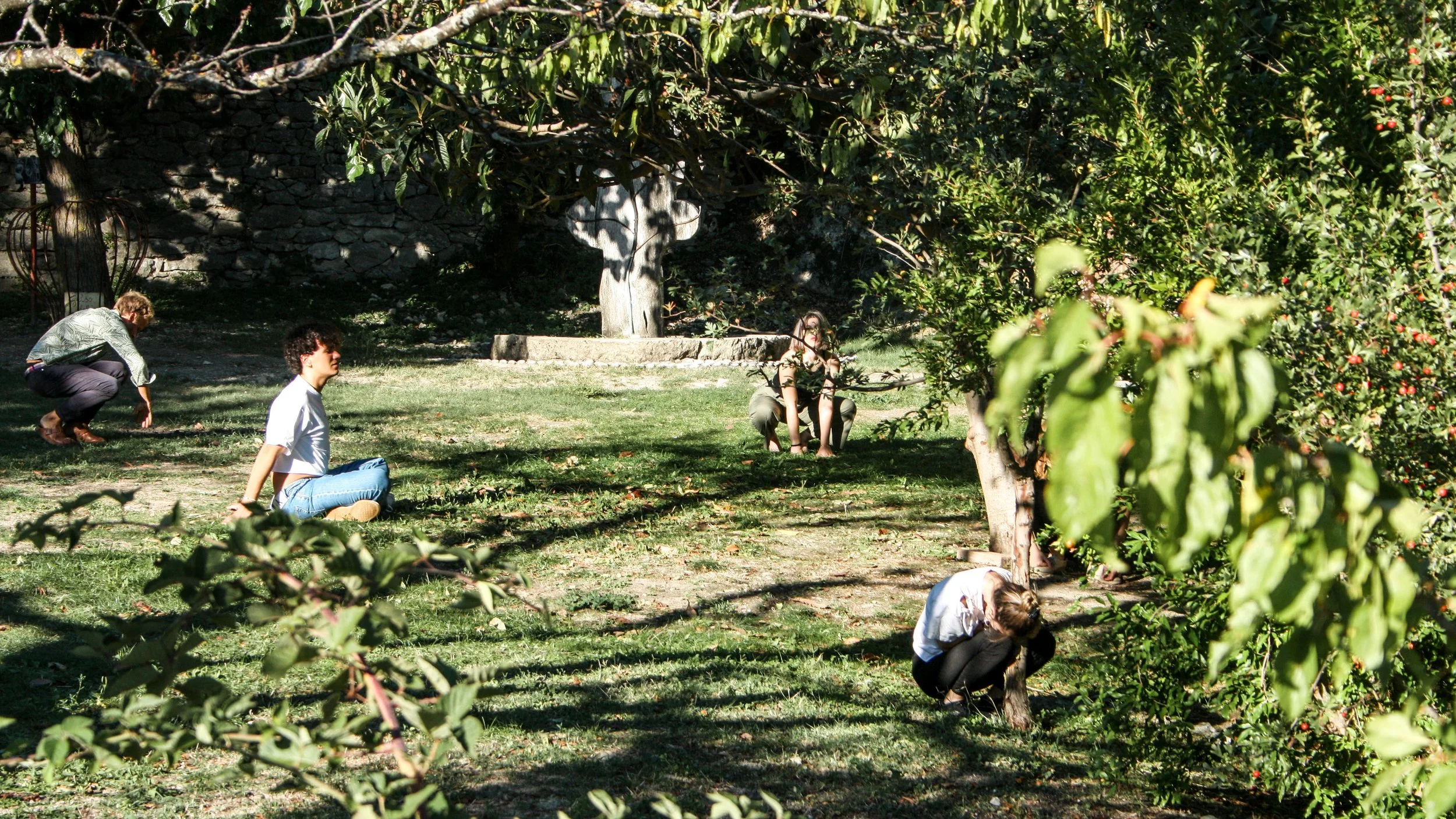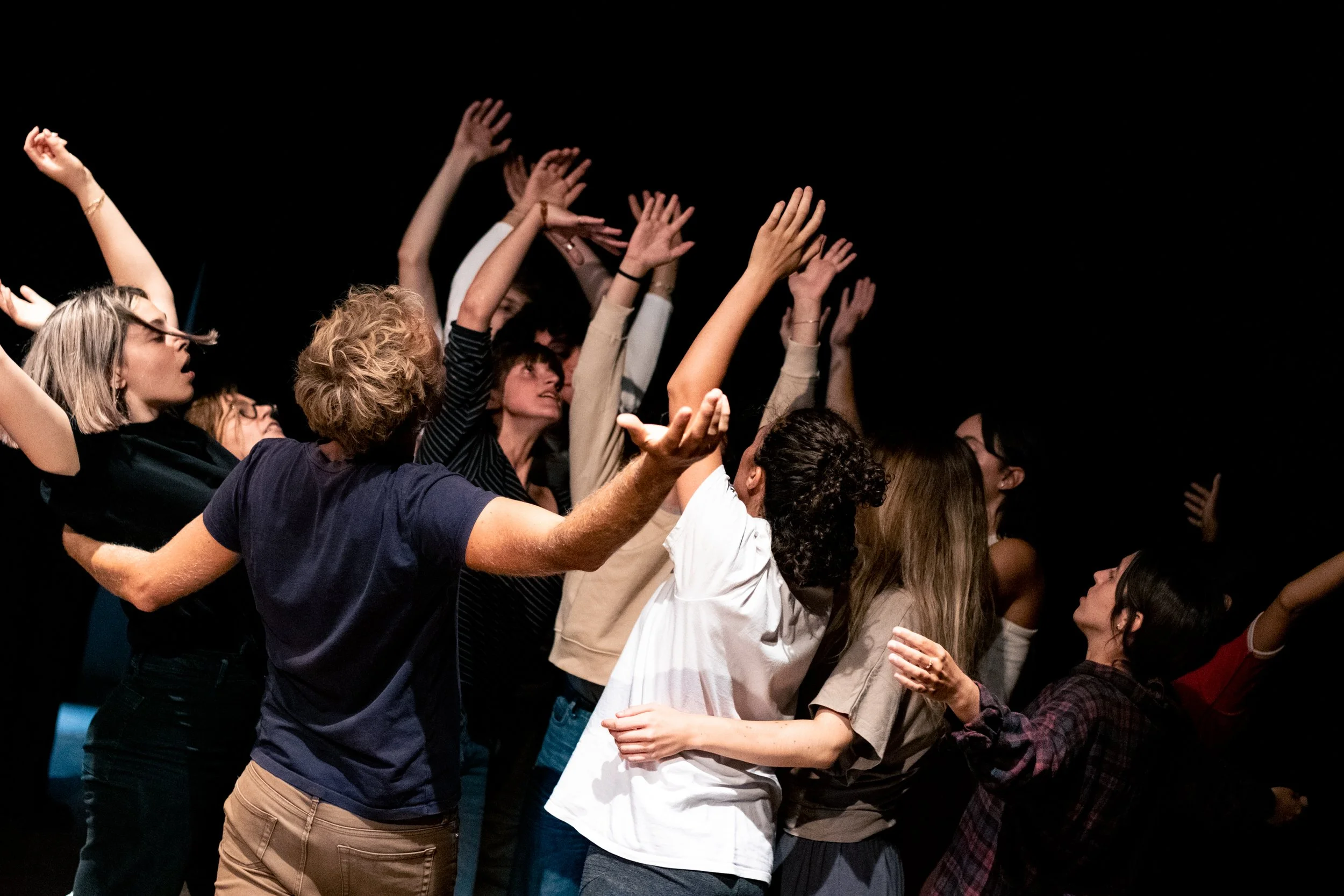Co Esistere – In a spirit of radical solidarity with nature
why this workshop
In an age of ecological collapse, climate anxiety, and continued alienation from the living world, it becomes urgent to reimagine how we relate to nature—not as a passive background, but as an active co-creator of life. Co Esistere invites participants to shift from speaking about nature to communicating with it, cultivating a practice of reciprocal listening and embodied empathy. Instead of designing “for” climate change, the workshop explores how we might design ourselves anew – by cultivating sensitivity, listening, and embodied awareness as practices of coexistence.
How can we practise solidarity with the more-than-human world and act within living systems, not as observers but as participants?
workshop overview
Co Esistere offers an experiential framework that combines embodied and sensory research methods to explore ecological interrelations through the body. Participants will engage in movement scores, guided sensory walks, and field exercises that activate listening, touch, and perception as forms of inquiry.
Through somatic and performative research practices, we will explore what it means to co-exist and co-create with natural and material environments – be it wind, soil, water, stone, or other living presences. Reflective moments, such as mapping, drawing and recording sound pieces from field work, will help articulate a space for collective experimentation, encouraging participants to cultivate embodied forms of knowing, sensing, and caring. In doing so, the body becomes a site of ecological intelligence and creative transformation to move beyond habitual notions of separation between human and non-human.
fields of engagement
The workshop connects theory and practice through the following interrelated fields:
Ecologies of Coexistence and Relational Design
Somatic Research and Environmental Embodiment
More-than-Human Relations and Situated Fieldwork
Socially Engaged Art Making and communal facilitation
of transformation
The framework can also be applied to participants’ individual research trajectories, making it suitable as a preparatory
format for project-based studies.
learning objectives
Participants will:
Critically explore how to move beyond language and conceptual abstraction when addressing ecological crises.
Centre bodily knowledge as a source of understanding and empathy toward the more-than-human world.
Conduct sensory and field-based research through touch, sound, and movement, and using tools of documentation such as film, audio, mapping, and scripting.
Experiment with performative and experiential settings that activate ecological awareness and interrelationality.
Develop an understanding of coexistence as a relational and reciprocal practice — ecological, political, and aesthetic in equal measure.
outcome
The workshop concludes with a collective performative intervention — a participatory (and site-specific) act that immerses participants in new forms of communication and relationality with the more-than-human-world.
This may take the form of soundwalks, performative movement scores in nature, or ephemeral group compositions in response to the environment.
Participants leave with both experiential and material outcomes that can feed into ongoing artistic or research projects.
practical information
Duration: Flexible (3–5 days, based previous experiences; can be adjusted depending on context and scope)
Requirements: A natural site for fieldwork (which may also include urban ecological spaces), and an indoor space for movement and reflection; projector and speakers. Participants should bring paper, pens, smartphones/cameras, strings, tape, and laptops.
Suitable for: Students and researchers in art, design, performance, and environmental humanities.
Accessibility note: Exercises are adaptable to participants with different physical or neurodiverse abilities. The workshop can be conducted in English and German
theoretical ressources
The conceptual framework draws on eco-feminist, and somatic theory, including:
Batacharya, Sheila & Wong, Yuk-Lin Renita (eds.) (2018). Sharing Breath – Embodied Learning and Decolonization. AU Press.
Eddy, Martha (2017). Mindful Movement – The Evolution of the Somatic Arts and Conscious Action. Intellect.
Eisenstein, Charles (2018). Climate: A New Story. North Atlantic Books.
Ertem, Gurur (2024). Care for the Earth, Love of the World – Thinking with Hannah Arendt on Somatic Movement / Dance. In: Greil, Mariella (ed.) Bare Bodies – Thresholding Life. De Gruyter.
Mies, Maria / Shiva, Vandana (1993). Ecofeminism. Zed Books Ltd.
Kimmerer, Robin Wall (2020). Braiding Sweetgrass: Indigenous Wisdom, Scientific Knowledge and the Teachings of Plants. Pengiun.
Escobar, Arturo (2018). Designs for the Pluriverse: Radical Interdependence, Autonomy, and the Making of Worlds. Duke University Press.
Povinelli, Elizabeth A. (2016). Geontologies: A Requiem to Late Liberalism. Duke University Press.
Thomas, Leah (2021). The Intersectional Environmentalist: How to Dismantle Systems of Oppression to Protect People + Planet. Voracious.
Tsing, Anna L. (2015). The Mushroom at the End of the World: On the Possibility of Life in Capitalist Ruins. Princeton University Press.
contact
For inquiries, collaborations, or workshop requests:
mail[at]vivientauchmann.com






